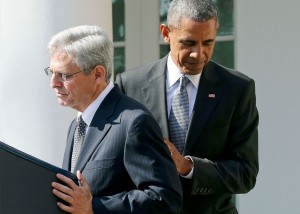I ran across an opinion column advocating for a ban of semiautomatic weapons — all of them; not just “assault weapons” — that raised the usual bogus points: The Second Amendment is not an individual right, the National Guard is the militia, no defensive usefulness, and so on.
I could address so many points in that column, but one truly stands above the others.
Why all semi-automatic weapons must be banned on a national basis
“The Constitution expressly allows Congress the right and authority to dictate the jurisdiction of the federal courts. To make sure the will of a majority of U.S. citizens are implemented, Congress could remove from the jurisdiction of the federal courts the ability to rule on the constitutionality of a ban of semi-automatic weapons (similar to the removal of jurisdiction over habeas corpus during the Civil War).”
The author, Bob Reid, is, according to the mini-bio, an attorney who has practiced for 46 years, working on “both state and federal constitutional issues.” That makes his bizarre claim even more incomprehensible.
I have studied the Constitution for decades but that provision still eludes me.
Article III, Section 1.
“The judicial Power of the United States, shall be vested in one supreme Court…”
Section 2.
“The judicial Power shall extend to all Cases, in Law and Equity, arising under this Constitution…” (emphasis added)
That would appear to assign jurisdiction over determinations of constitutionality to the courts. As for the suspension of habeas corpus as a pseudo-precedent for limiting the power of the Supreme Court, specifically delegated to the Courts by the Constitution…
Article I, Section 9
“The Privilege of the Writ of Habeas Corpus shall not be suspended, unless when in cases of rebellion or invasion the public Safety may require it.” (emphasis added)
Is Reid seriously proposing that Congress declare war (Article I, Section 8, Clause 11) on the people of the United States, as a means of suspending the Constitution?
And, frankly, citing Lincoln’s abuses of that suspension to imprison his judicial and press critics is bad enough; but the more recent suspension of habeas corpus used for the WW2 internment of thousands of Japanese-American families — including children — is hardly something I would use as justification for more constitutional abuses.
I wrote to Reid, to ask him to cite the constitutional provision which allows this proposed limitation on the Supreme Court. He surprised me by responding.
The Constitution lays out the original jurisdiction of the Supreme Court, but relegates to Congress the unrestricted right to create the judiciary under the Supreme Court, which it has done by creating District Courts and Courts of Appeal. Under this power, Congress can clearly dictate what kind of cases these lower courts can consider (and has exercised this power in the past). If the lower courts are not granted jurisdiction over certain subject matters, and the issue is not part of the Supreme Court’s original jurisdiction, the matter could not make its way to the Supreme Court.
He completely ignores the Article III assignment of jurisdiction for all federal courts, Supreme and inferior, and pretends to find it in the power to institute lower courts. I believe Mr. Reid, apparently primarily a tax attorney, is confusing Article I Tribunals with Article III Courts, and forgetting that tribunals are still “inferior to the supreme Court, just as Article III courts are “such inferior Courts.”
Tribunals are specialized “courts” that Congress can — and has — created for special limited purposes, “administrative courts” such as “tax court.” They are limited in their scope and power compared to Article III Courts.
In theory, Congress could create an ATF “gun court” tribunal responsible for ruling on GCA and NFA charges. But that tribunal — once again — is still “inferior to the Supreme Court” and its rulings would still be subject to Supreme Court review. That means The Supreme Court can still determine whether the tribunal’s acts, and the laws it enforces, are constitutional.
I hope Reid is better at tax law than he is at constitutional law.
He did have one other innovation for his ban; one that avoids the need for a few million door-kicking confiscators (and body bags for them).
These prohibitions should be coupled with a national buy-back program of semi-automatic weapons, but the refusal to sell these weapons or magazines to the government would not itself be a crime. Rather, if a crime is committed using a prohibited weapon or magazine, the owner or immediate seller of such a weapon or magazine would be equally liable for any crime committed with such weapon or magazine, regardless of who pulled the trigger.
So it’s a not a ban. But the criminal use of a semiauto would be a crime.
Hint, Mr.Reid. It already is.
Click here to donate via PayPal. (More Tip Jar Options) |

 The Zelman Partisans strongly opposes President Barack Obama’s
The Zelman Partisans strongly opposes President Barack Obama’s